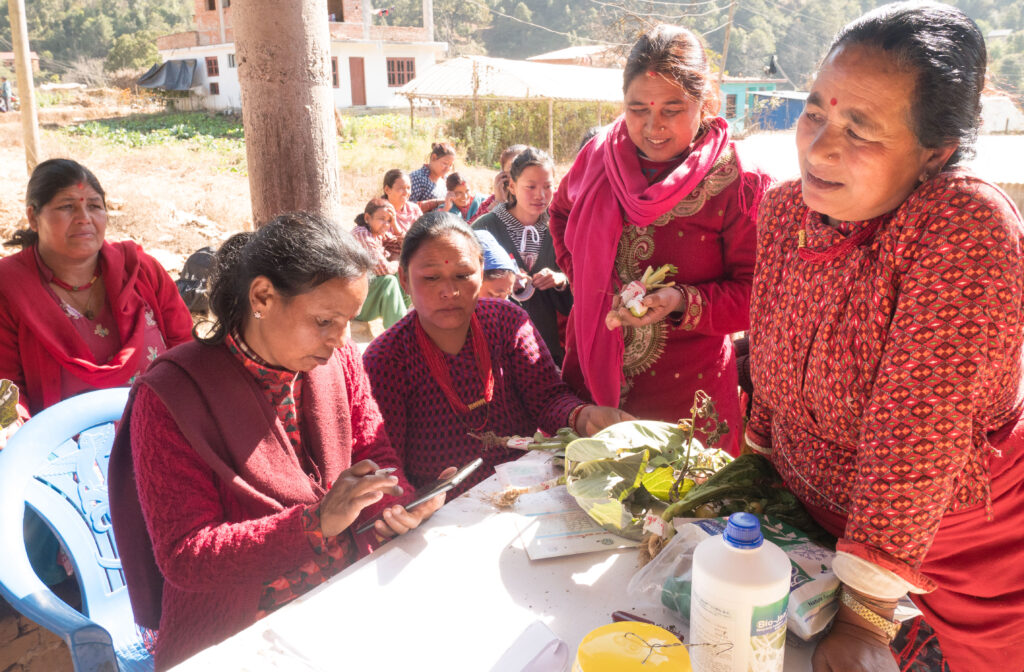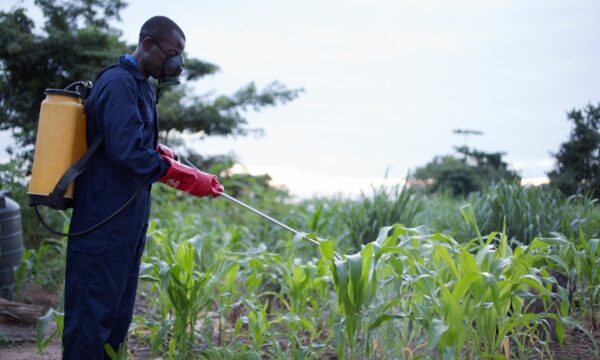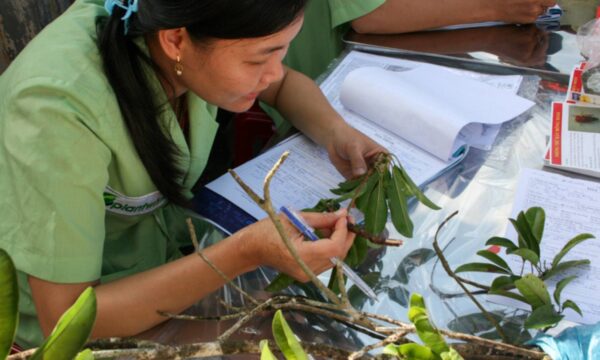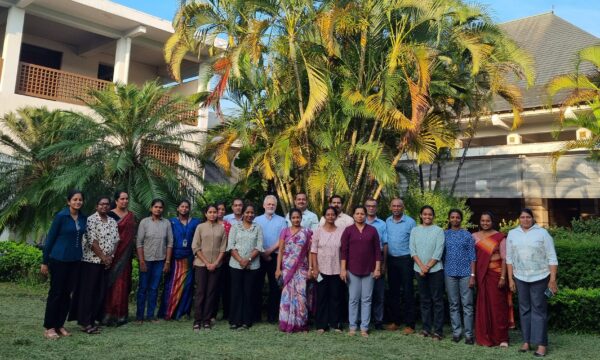In Nepal, the International Development Enterprise (iDE) has introduced an approach to address the challenges smallholder farmers face in accessing agricultural inputs and advice. Known as Community Business Facilitators (CBFs), these individuals are local citizens trained to provide agricultural services within their communities. Some CBFs also train as plant doctors (CBF-PDs) through CABI’s PlantwisePlus programme, offering crop health diagnostic services.

Introducing CBFs and CBF-PDs is an encouraging solution. But with any novel approach comes prospects and risks. The PlantwisePlus programme conducted a survey to evaluate these.
CBFs and CBF-PDs act as intermediaries. They connect farmers in remote areas with markets, ensuring the supply of agricultural inputs, and providing agronomic advice. The services, which include input supply, seedling production, and advisory support, bridge gaps in extension services. The CBFs/CBF-PDs receive commissions for the products they facilitate, fostering a commercial incentive to meet the needs of smallholders.
Notably, CBFs and CBF-PDs operate in their own communities, developing long-term relationships and ensuring sustained service provision. The initiative has trained 771 individuals since 2010, emphasizing local knowledge and relationships. The survey found that the approach has created income-generating opportunities. However, gender dynamics play a role, with women facing challenges in more traditional communities.
While the CBF approach has shown promise, ensuring sustainability requires addressing challenges. Such as seasonal income fluctuations and the need for diverse skill sets. Adding plant doctor training, and further research on engaging women effectively would contribute to the initiative’s long-term success.
The results of the survey are documented in a new article in Rural 21 – The International Journal for Rural Development. You can read the introduction below or visit the Rural 21 website to read the article in full.
Support for smallholders in Nepal – are community business facilitators the answer?
This article was originally posted on Rural 21
For many smallholders living in remote districts in Nepal, it is difficult to access agricultural inputs and agronomic advice. Therefore, there have been numerous public and private interventions to change this state of affairs. One approach that has been ideated by the International Development Enterprise (iDE) is the concept of Community Business Facilitators (CBFs). Based on a survey by the non-profit intergovernmental development and information organisation CABI, this article seeks to demonstrate the prospects and risks the approach bears.
CBFs are local citizens living in farming communities who are capacitated and trained to provide agricultural services to smallholder farmers locally, within their communities. In addition, some of the CBFs were trained as plant doctors (CBF-PDs) through CABI’s Plantwise programme to provide improved and quality crop health diagnostic services to farmers.
Thus, both CBFs and CBF-PDs primarily offer agriculture services as input supply (linking farmers with agrovets) as well as producing and selling planting material (seed/seedling). These services help to connect farmers in remote areas to markets, guarantee them the provision of agricultural inputs and provide agronomic advice. So CBFs/CBF-PDs bridge last-mile input supply chains and fill a critical gap in extension services that is missing or weak, especially for isolated and hard to reach communities in Nepal, while concurrently supplementing their own income and livelihoods. Additionally the CBF-PDs provide farmers with advice on integrated pest management (IPM) as well as good agriculture practices, and they demonstrate to farmers the usage and application techniques of micronutrients and bio-pesticides.
Read in full on Rural 21 →
1 Comment
Leave a Reply
Related News & Blogs
How do pest risk registers address the spread of plant pests in Africa?
Pest risk registers can help to solve problems in agriculture, addressing the growing global threat of plant pests. Moreover, changing weather patterns, led by rising temperatures, are causing them to reproduce faster and expand into new regions. In ad…
10 July 2025





Appreciate the effort.
Need physical training to all LDC & Developing countries farmers.